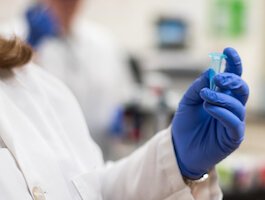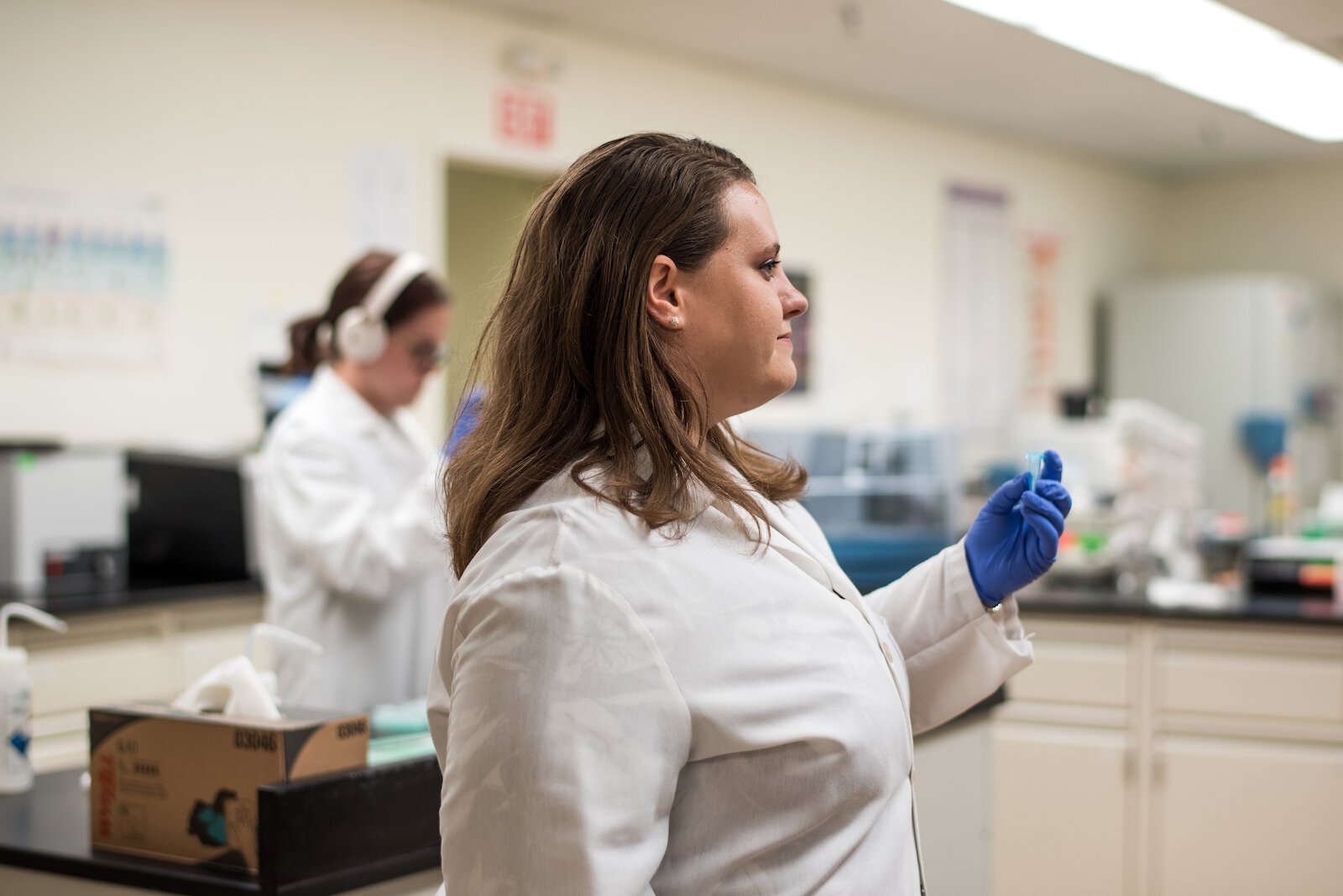‘Trial and error is the hallmark of prescribing mental health medication. This test can help minimize, or even eliminate in some cases, that trial-and-error process.’ — Anna Langerveld, president and CEO of Kalamazoo’s Genemarkers
Almost a quarter of American adults have a prescription for a mental health medication. But one of the biggest challenges in psychiatric treatment is finding the right medication and dosage for an individual patient.
It often takes months of experimentation to find an effective psychotropic drug. Up to half of patients with major depressive disorder do not respond to the first antidepressant prescribed, and U.S. emergency departments report 25,000 visits per year related to antidepressant-induced adverse events, studies show.
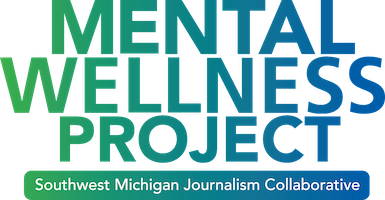
Such back-and-forth attempts can be challenging for any patient. For a person combating mental health difficulties, the process can prove alarming enough to make them refuse to try again, says Anna Langerveld, president and CEO of Genemarkers in Kalamazoo.
Her company is among those offering a promising tool to address that issue: A cheek swab lab test that reveals genetic variations in enzymes needed for drug metabolism. Those test results can result in prescribing drugs with greater accuracy.
Although pharmacogenomic testing, commonly called PGx testing, has been around for years, mental health providers have been slower to adopt it than other medical fields. But the American Psychiatric Association has been gradually promoting its use amid growing evidence of its effectiveness, and PGx testing is edging its way toward inclusion in southwest Michigan mental health care.
Not all Kalamazoo-area providers encourage patients to consider the testing, which has seen slow adoption in part because of the cost of the test and patient fears about how their personal genetic information might be used.
Increased insurance coverage, widespread marketing of genetic testing outside the medical world, and patient eagerness, as they learn about the testing’s promise, could speed up its adoption in southwest Michigan.
Properly matched medications and patients willing to stay on them with the confidence that can come from a genetic test can lower costs to the health system at large, make the community safer, and increase the quality of life for patients and their families, Langerveld says.
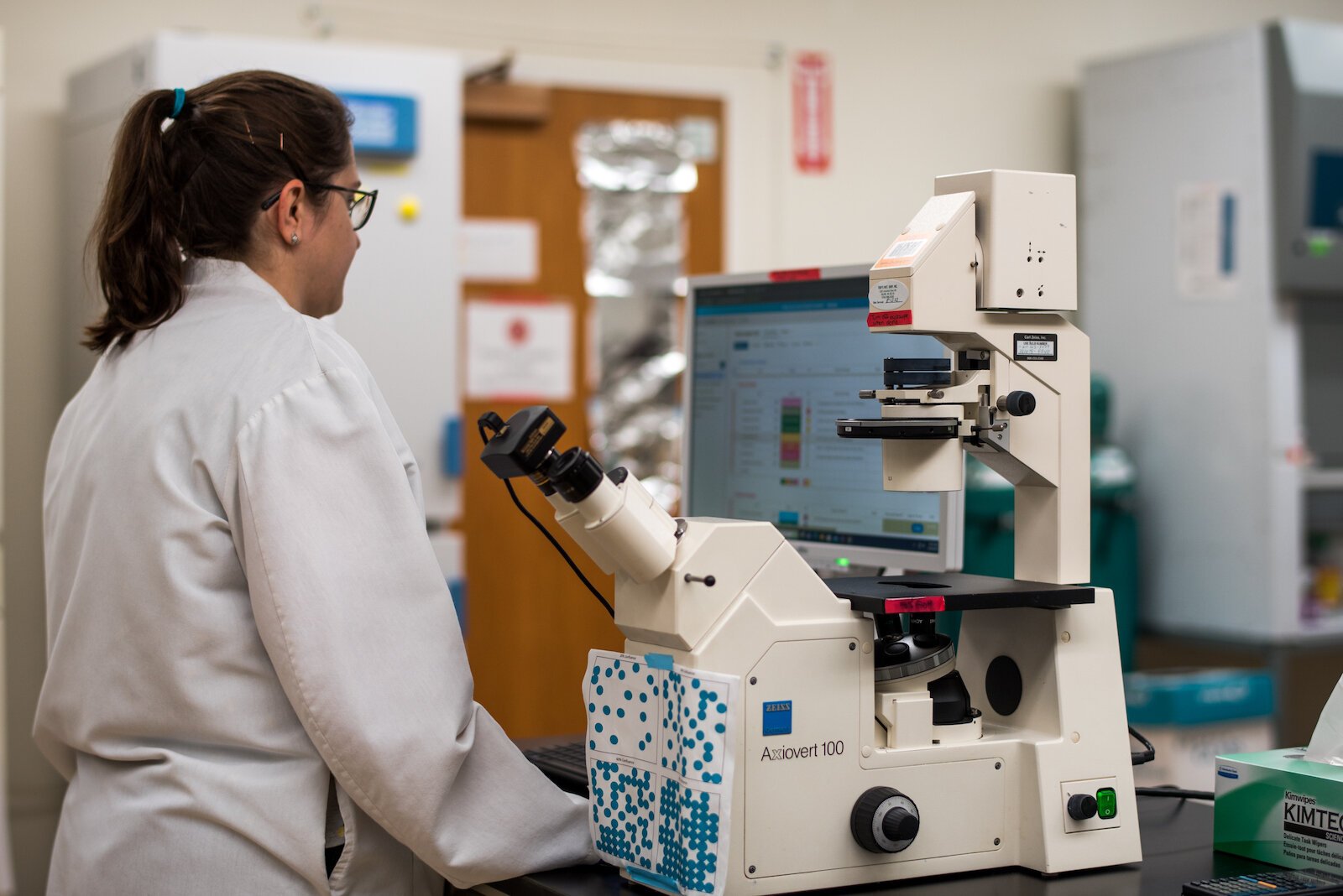
“Hospitalizations, legal problems, housing, everything just crumbles when somebody’s not stable,” she says. “If you can get somebody stabilized on the right medications, they have a better chance.”
Better, faster treatment
At Choices for Change counseling center in Kalamazoo, owner Michelle Zukowski-Serlin has seen genetic testing create positive outcomes for her clients.
Psychotropic drugs not only require a substantial trial period, they also often come with significant side effects, like weight gain and sexual repression. A test that can rule out potentially ineffective drugs and rule in an alternative with fewer side effects goes a long way toward patient success, Zukowski-Serlin says.
Many private insurance companies don’t cover the test, which can be cost-prohibitive for patients, and that limits the number of local providers who feel comfortable sharing it as an option for patients. But Medicaid covers the testing and for those patients, PGx testing is a welcome resource, she says.
“Because you get it right much quicker,” Zukowski-Serlin says. “They’ve got a better chance of being helped.”
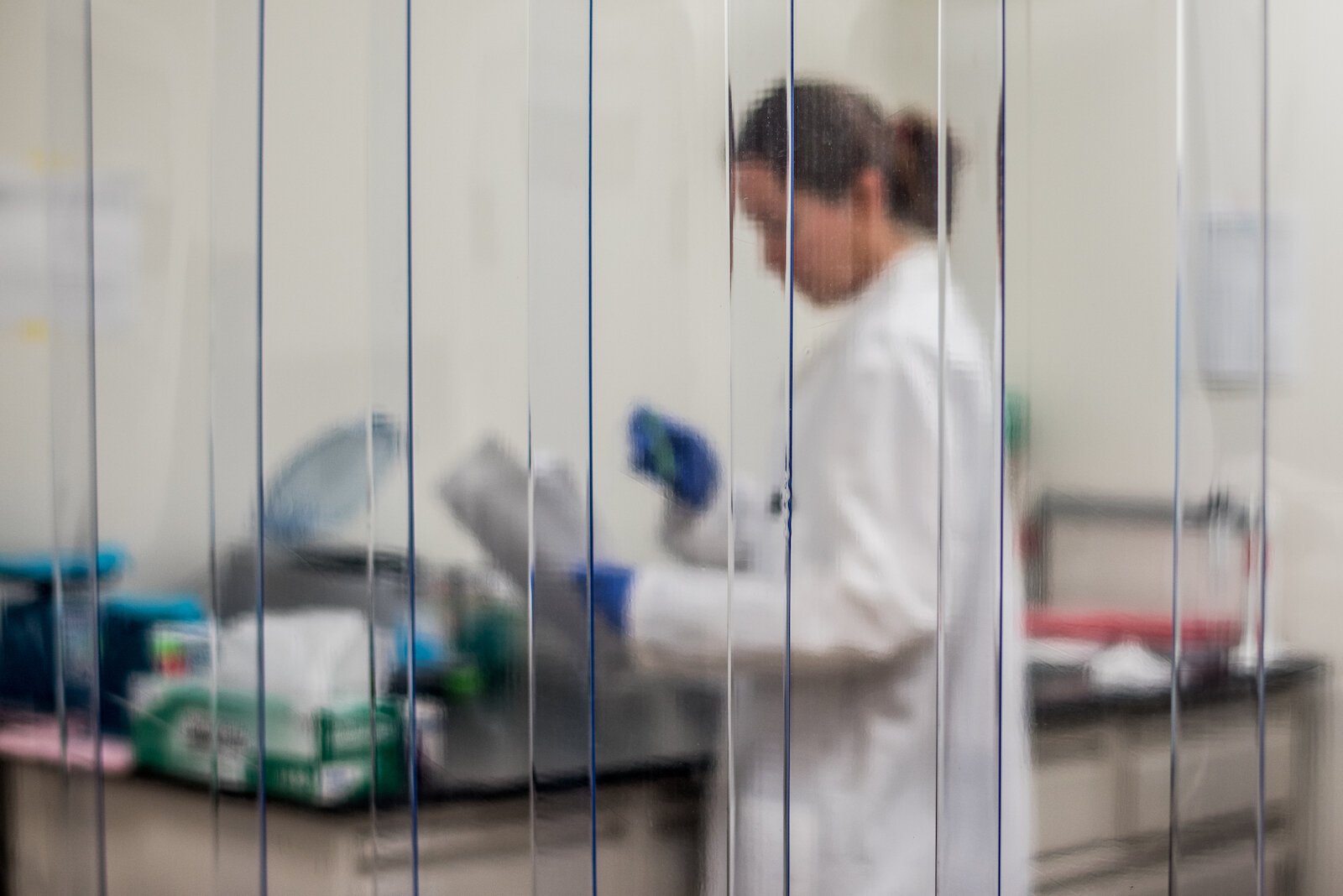
‘Everyone should have this’
As a scientific field, genetic testing has rapidly gained popularity since 2003, and can help doctors predict a patient’s risk of developing a condition or diagnose or rule out genetic disorders.
A branch of the genetic testing field, pharmacogenomics, uses genetic factors to predict how a patient will metabolize specific drugs. The testing enables physicians to tailor a prescription to how a patient will probably respond to it, increasing the chances the medication will treat the patient’s condition as intended.
Many medical doctors have incorporated PGx testing into their practices. In the mental health arena, however, the testing has not yet seen universal adoption by prescribing doctors or their patients.
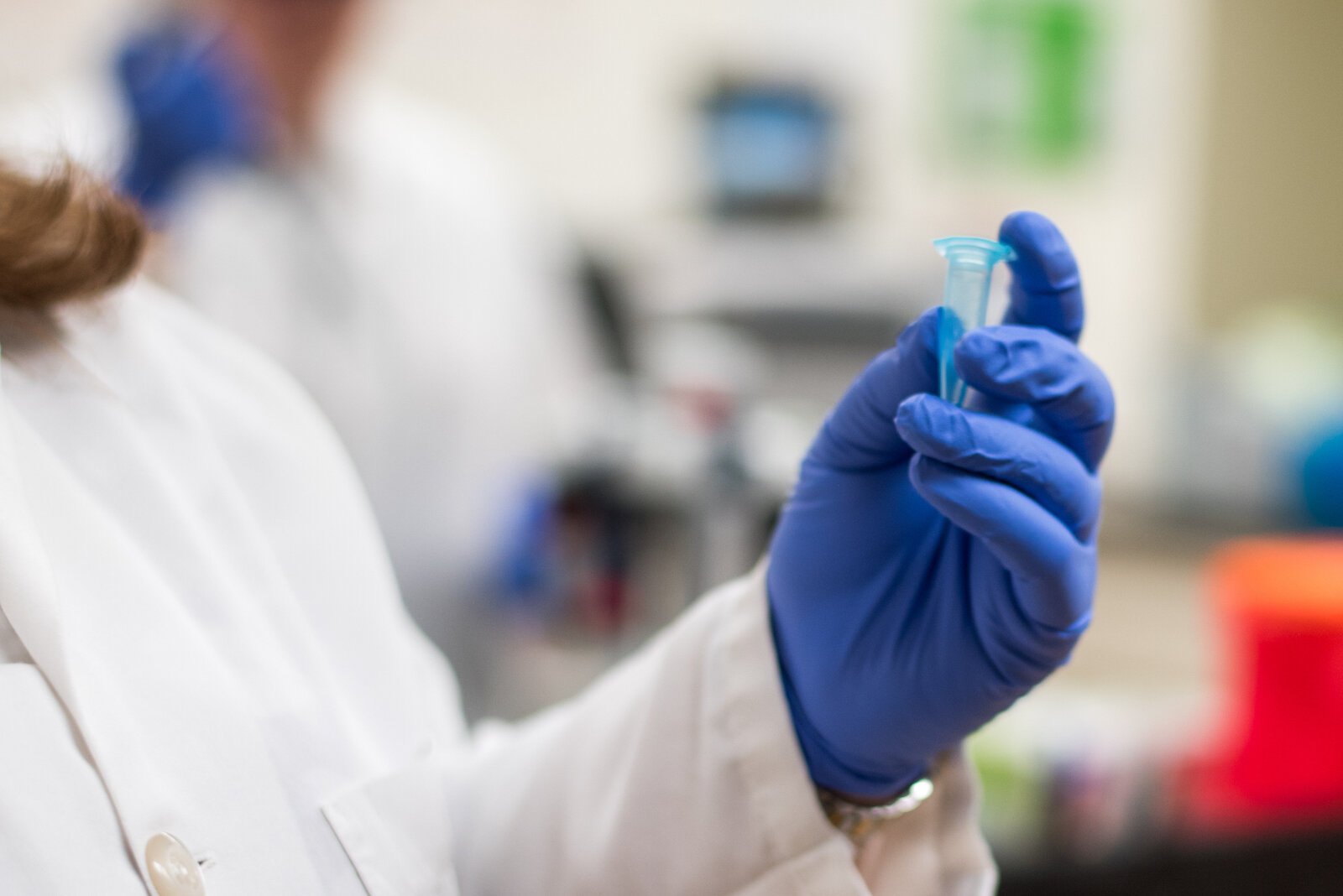
And there is room for improvement in psychotropic medication prescribing. Several studies show drugs intended to help with major depressive disorders, for example, work only half of the time.
Genetic testing could increase that percentage, advocates say. And some science backs that up. In a 2018 study published by Future Science Group, researchers found that study participants incorporating PGx testing into their treatment for acute depression were twice as likely to experience remission of their symptoms as those who did not undergo the test.
“We can no longer ignore the statistically proven superiority of pharmacogenetic testing vs. treatment as usual,” says Dr. Daniel Mueller, head of the Pharmacogenomics Research Clinic at University of Toronto, in a July 2022 article posted on the website of the American Psychiatric Association.
That article also referenced a study published in the January 2022 edition in Pharmacopsychiatry. That study involved a group of experts assembled by the Society of Psychiatric Genetics to analyze the existing research, prescribing guidelines, and product labels. That analysis supported genetic testing for several commonly used antidepressant and antipsychotic medications as well as several mood stabilizers.
“Although barriers to implementing PGx testing remain to be fully resolved, the current trajectory of discovery and innovation in the field suggests these barriers will be overcome and testing will become an important tool in psychiatry,” the study says.
Three studies cited in a review published by Psychiatry and Clinical Neurosciences found that reductions in emergency room visits and other health needs associated with use of PGx testing saved $6,000 to $7,000 per patient per year.
Since Genemarkers launched in 2014, “everyone has been saying, ‘This should be standard of care,’” Langerveld says. “‘It will be in everybody’s chart. Everyone should have this test.’”
Finding the best fit
At her lab last month, Langerveld demonstrated the testing process.
In an unpretentious room down a simple hallway under a parking garage, workers extract DNA swabbed from inside the cheek of a patient.
“That’s the simple part,” says Langerveld, explaining a series of steps resulting in meticulously cleaned DNA isolated in small capsules of liquid.
A little farther down the hall, another room is divided in two by a wall of thick, translucent plastic, hung from the ceiling in vertical strips. On one side, workers prepare the DNA samples for testing by adding a chemical that tags specific genes within the DNA with identifying fluorescent colors.
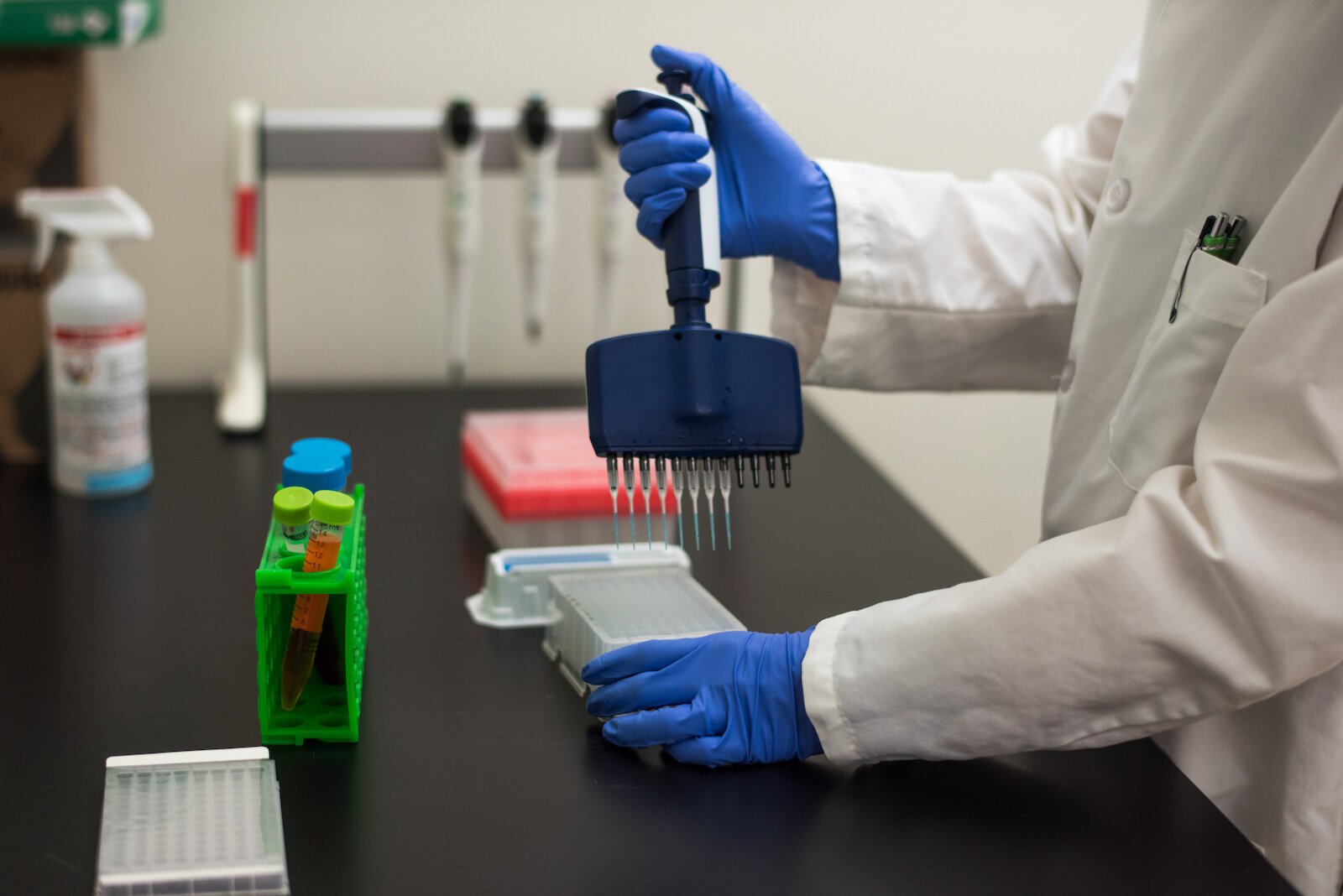
Machines not much bigger than a microwave, humming on the other side of the plastic curtain, process minuscule samples of DNA, probing for and highlighting the dyed genes. The results, splayed across a graph on a scientist’s computer, predict whether a specific drug will break down quickly or linger in the patient’s system.
Afterward, an extensive, medication-specific report tailored to the patient’s exact genetic structures offers suggestions from increasing or decreasing standard doses, to cautioning against drug combinations, to suggesting a drug that might work better for that patient.
Those results could spell the difference between a person sticking with medication through a mental health crisis and the same person refusing to take a drug that could help them, Langerveld says.
“Trial and error is the hallmark of prescribing mental health medication,” she says. “This test can help minimize, or even eliminate in some cases, that trial-and-error process.”
Patients tested before being prescribed medication say doctors were less likely to discount reported side effects or make their patients feel at fault for not responding well to treatment, according to surveys included in a 2022 study published in the Journal of Personalized Medicine.
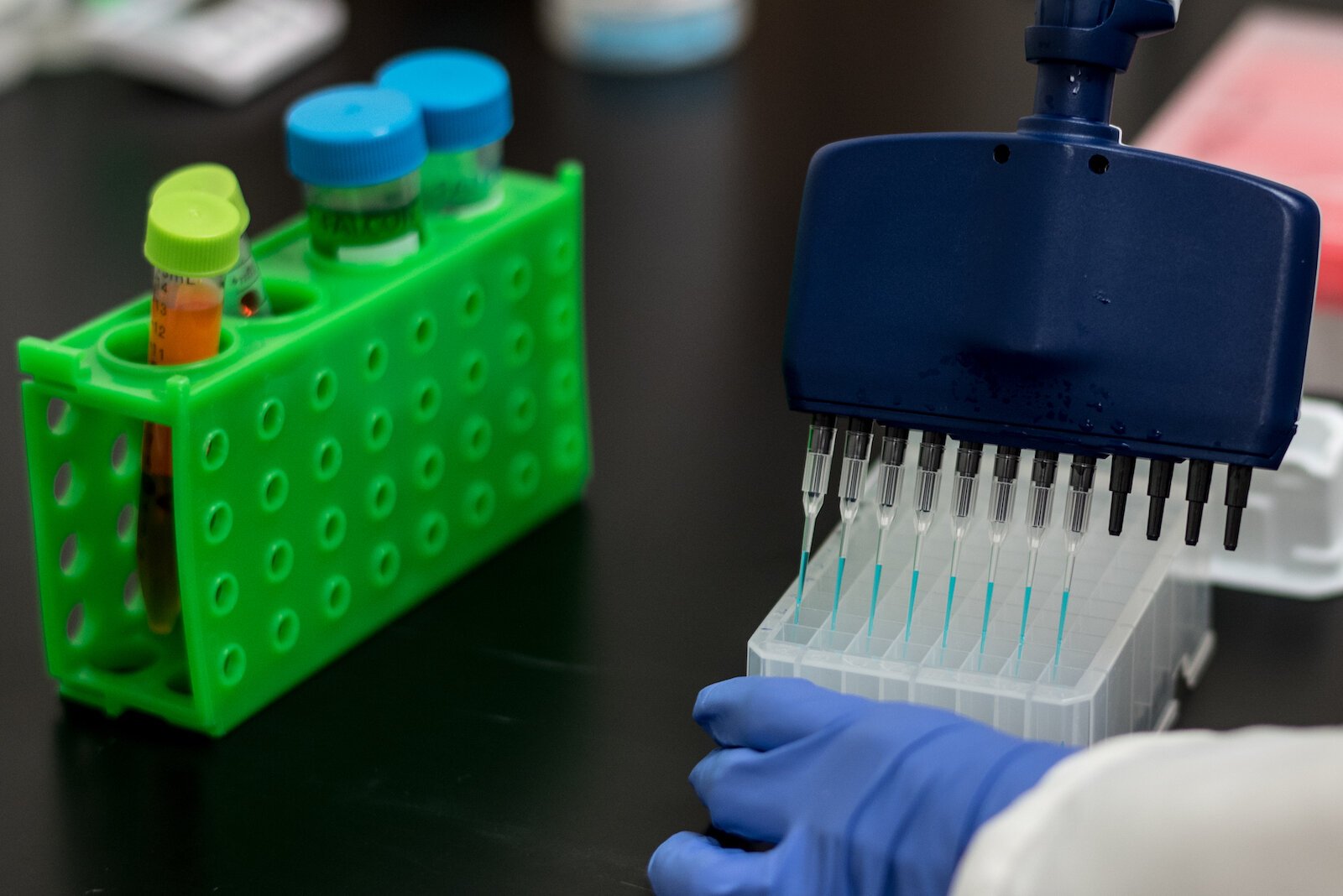
The same study reported that, though some patients worried the tests would reveal additional potential for future sickness that could raise their insurance rates, most survey subjects say they found the tests comforting and useful.
Families, too, benefit from the right mental health dosage, as a person who has found and is willing to stick with the right drug is more likely to have positive interactions with loved ones and struggle less with the serious social concerns that can accompany mental illness, Langerveld says.
Slow acceptance
Although her lab is located in downtown Kalamazoo, most of her orders for mental health-related tests come from outside the area, Langerveld says.
Some health care providers enthusiastically embrace gene testing when considering medications for their patients, she says.
“Others are like, ‘No, thank you,’” she says. “‘We don’t believe in it. We don’t want to do it.’”

Money plays a big role in decisions about using the testing. Until recently, Medicare did not reimburse for genetic testing related to mental health care drugs, and patients and providers shied away from incurring a daunting out-of-pocket cost.
Medicare recently agreed to cover such testing in specific circumstances, stipulating that the test must be a medical necessity and only ordered by a limited range of physicians. Medicare also strictly regulates who can perform the tests to qualify for reimbursement.
Genemarkers has been approved under Medicare’s reimbursement policy, Langerveld says.
A 2021 paper by the U.S. Department of Health and Human Services reported that Medicare payments for genetic tests quadrupled between 2016 and 2019. The report cautioned against overuse of genetic testing, saying it could drive up costs for patients if Medicare can’t or won’t pay their bills.
While insurance companies may not all be on board yet with full coverage of pharmacogenomic testing, the tests do have a positive financial impact when patients have fewer side effects ― because their medication is a better fit ― and need fewer trips to the doctor or other medications to counter those effects.
Until recently, Langerveld heard frequent concerns about privacy related to genetic tests. Now with the growing popularity of publicly-available tests linked to genealogical research, “their DNA is all over the internet already,” easing that worry and opening the door to more clinical use, Langerveld says.
With only half of patients taking even non-psychotropic drugs as prescribed, according to several studies, every effort to increase compliance with drugs that could stabilize someone battling depression, anxiety, or other mental illness is worth pursuing, Langerveld says.
Stephanie Wheeler, clinical testing specialist at Genemarkers, receives emails and thank-you notes from people who say she has changed their lives.
Patients thank her for helping them get better and go back to work. Providers say she gave them a crucial tool for caring for their patients. Family members of people struggling with severe mental illness say her work gave them their loved one back.
As scientists, the lab workers enjoy using fancy tools and working with data. But, Wheeler says, the real value of the work comes from the change they know they have made in someone’s life.
“It makes us feel really good about what we’re doing,” Langerveld says. “There’s a person at the end of the test.”
This article is part of The Science and Art of Well-being: Innovations and best practices in mental health care, a solutions-focused reporting series of Southwest Michigan Journalism Collaborative. The collaborative, a group of 12 regional organizations dedicated to strengthening local journalism and reporting on successful responses to social problems, launched its Mental Wellness Project in 2022 to cover mental health issues in southwest Michigan.

